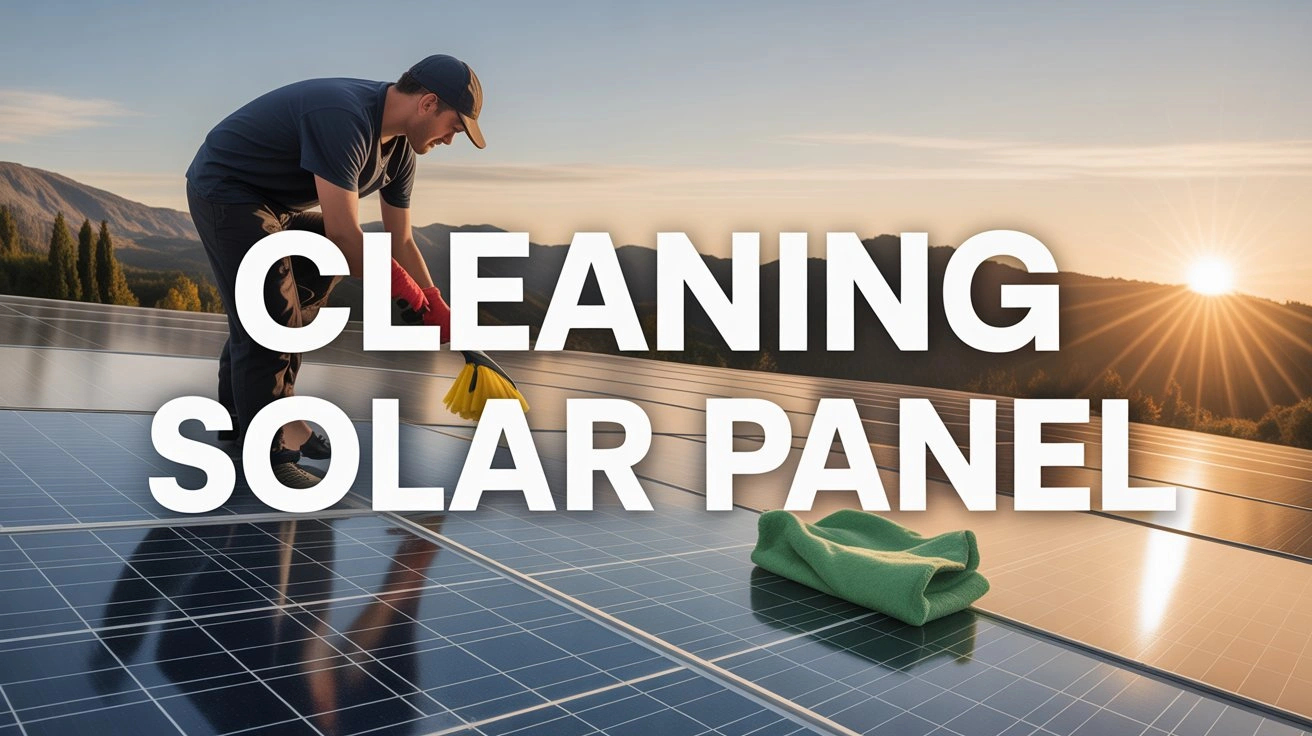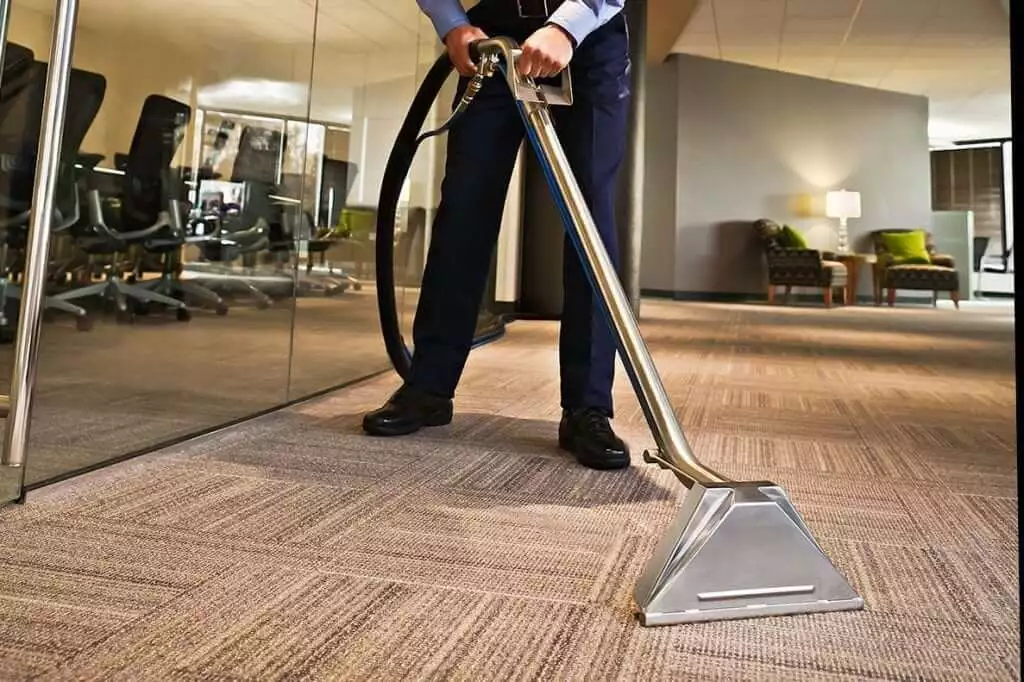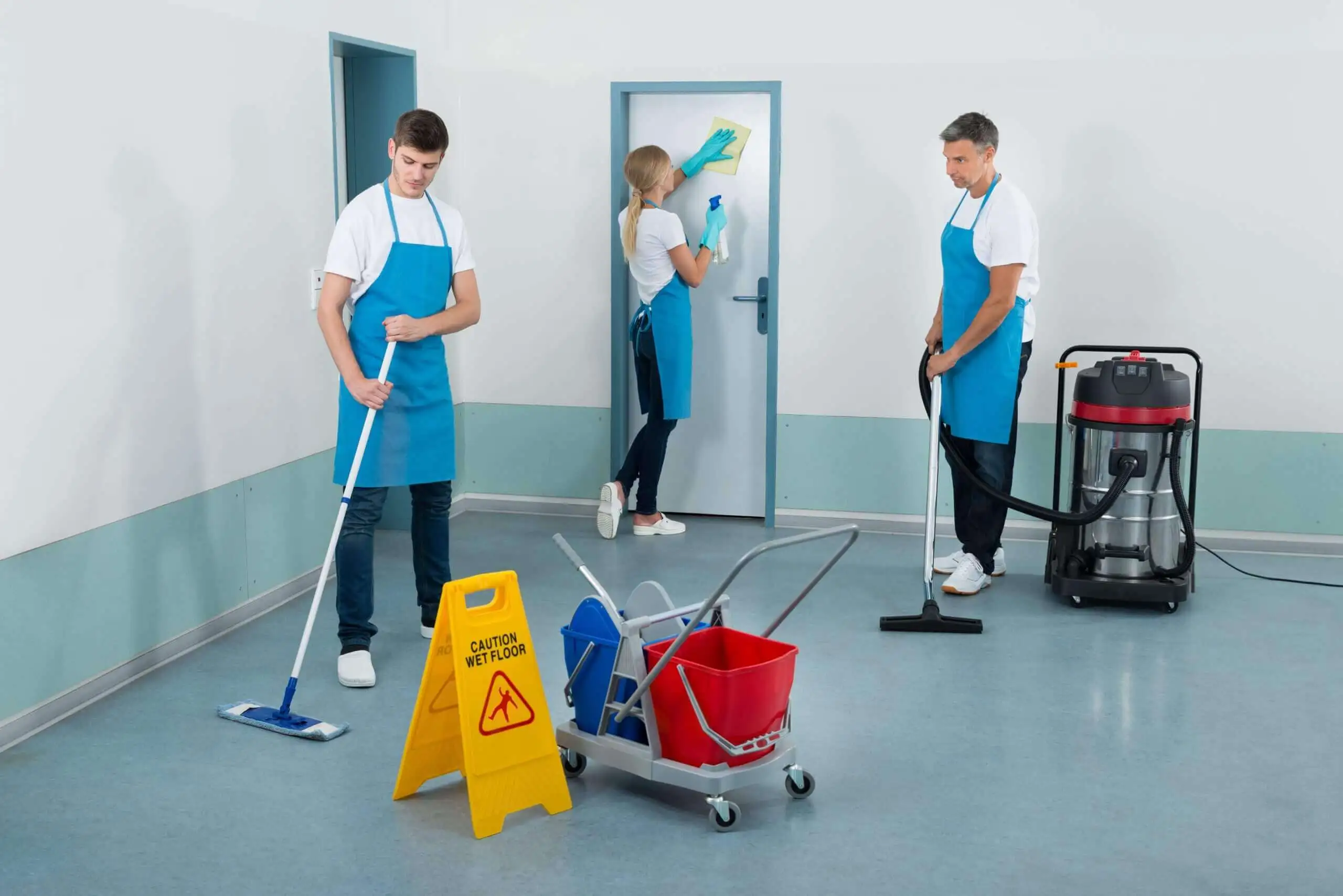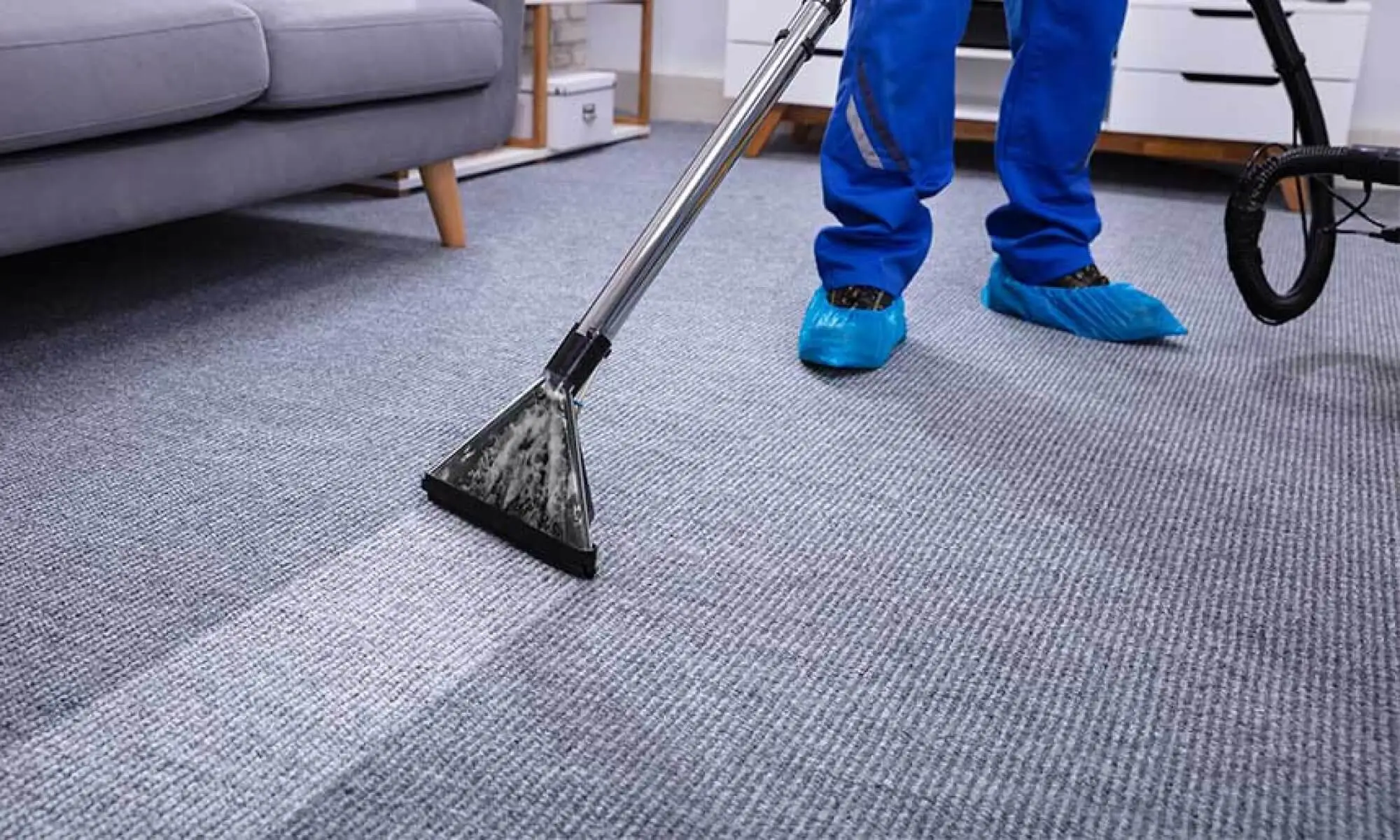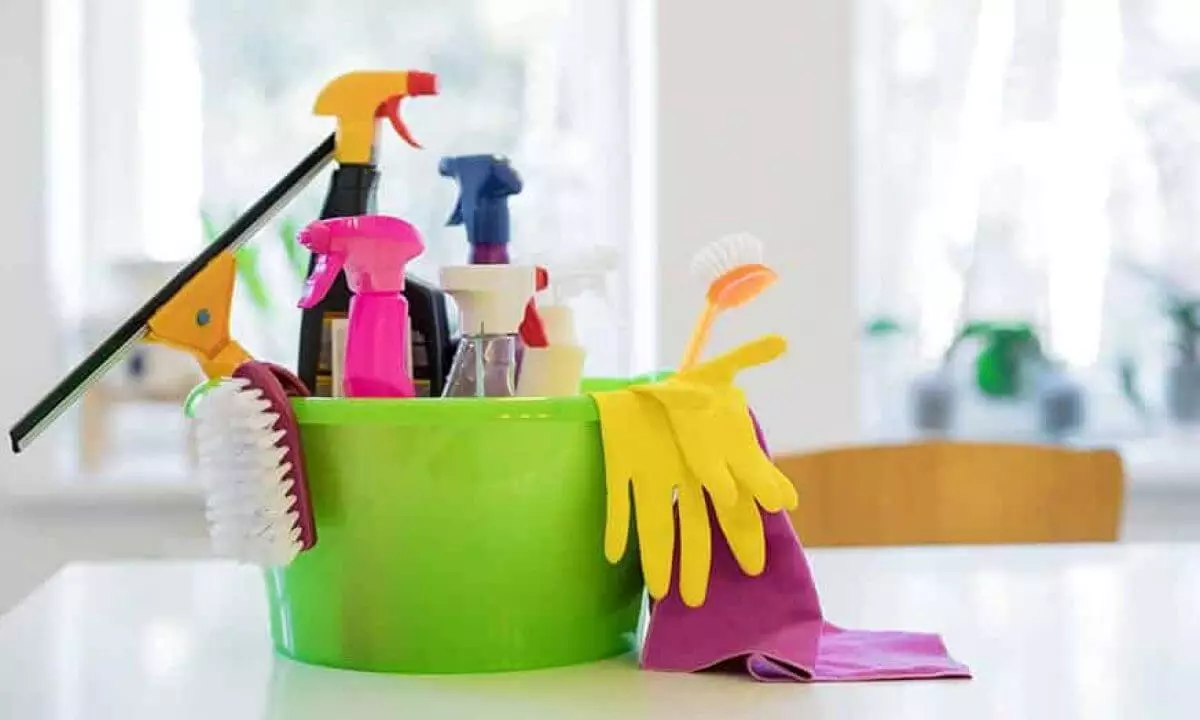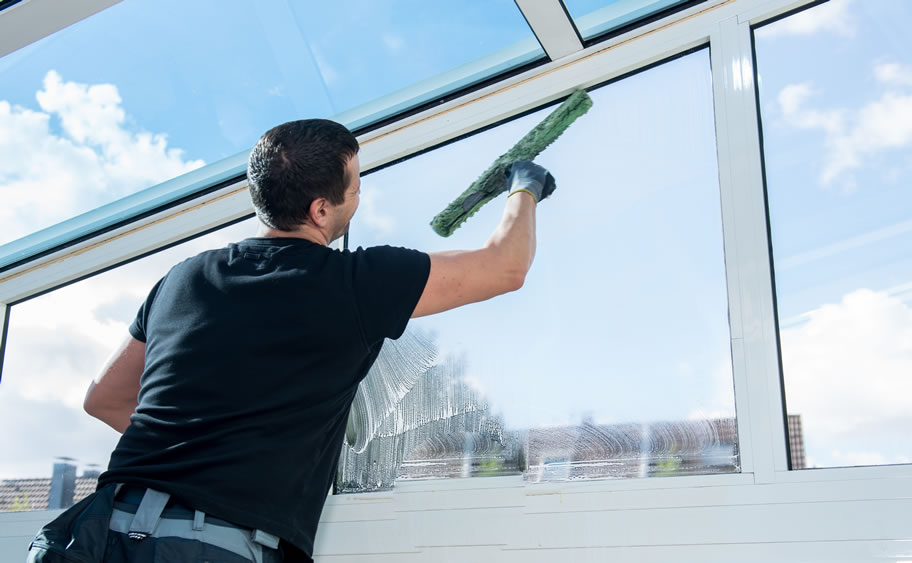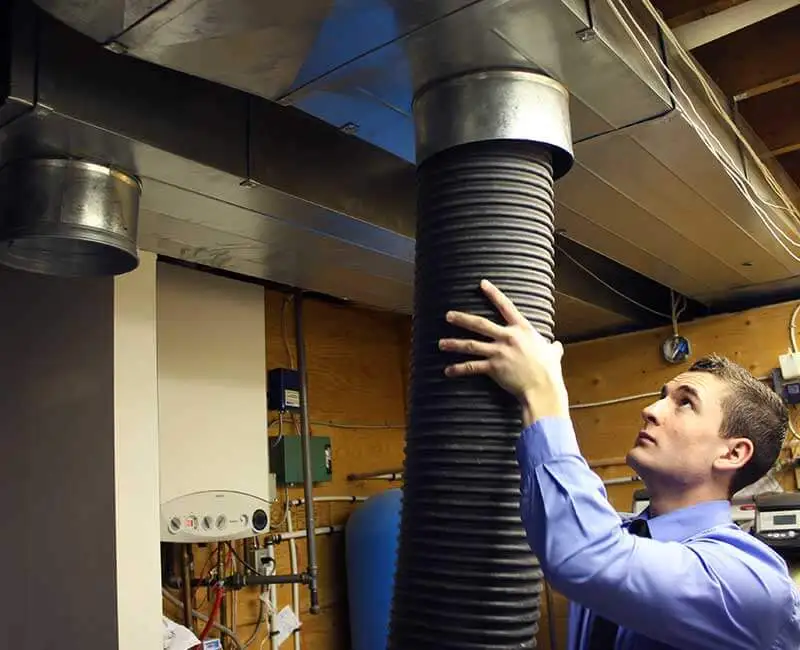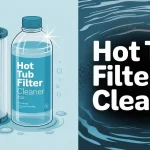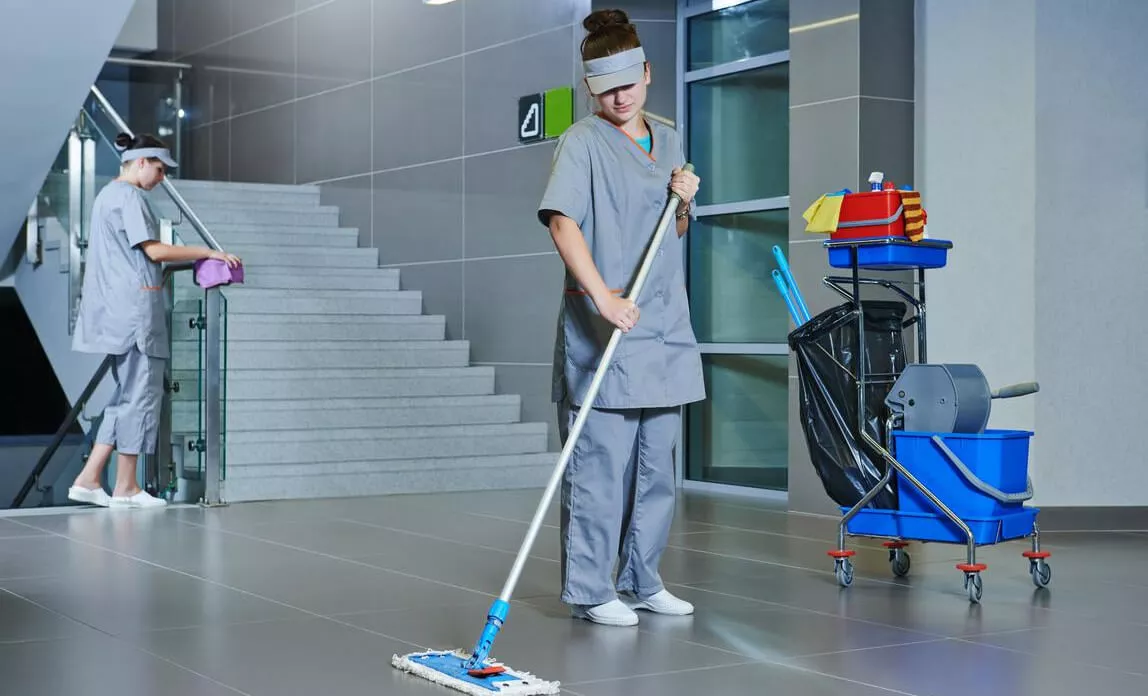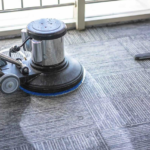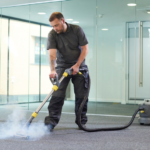Solar panels are a smart investment for reducing energy bills and lowering your carbon footprint. However, to keep them working at peak efficiency, regular maintenance is essential. One important part of that maintenance is cleaning solar panels the right way. Many homeowners make simple mistakes that reduce energy output or damage the panels. This guide will show you how to avoid those mistakes, using safe and effective methods backed by facts and expert advice.
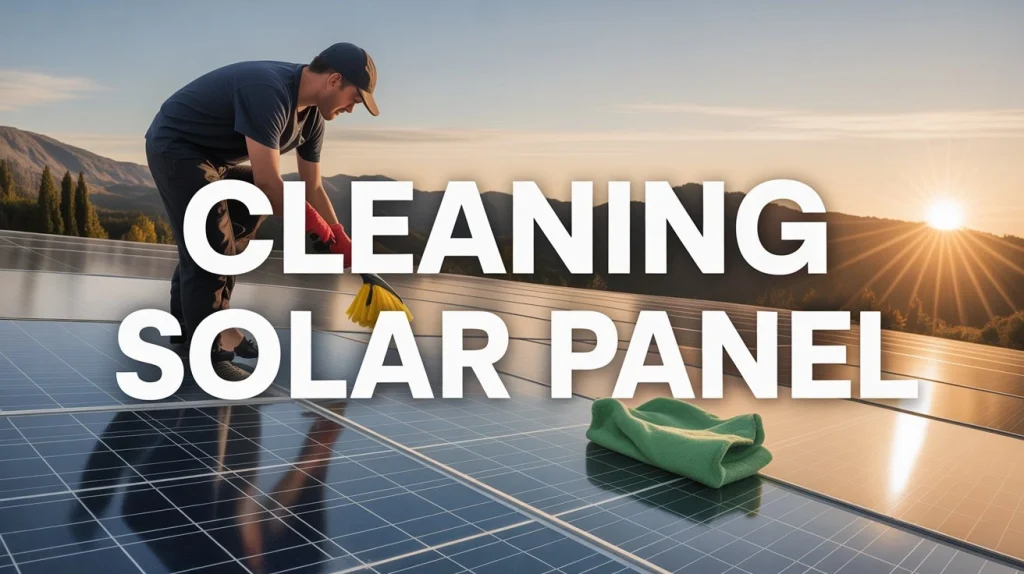
Content
Why Cleaning Solar Panels Matters
Dust, bird droppings, leaves, and pollution can block sunlight from reaching the photovoltaic cells. According to the National Renewable Energy Laboratory (NREL), dirty solar panels can lose up to 25% of their energy efficiency. In areas with heavy dust or pollen, efficiency loss can be even higher.
Regular cleaning helps:
- Maximize energy production
- Extend panel lifespan
- Maintain manufacturer warranties
- Prevent long-term damage
Common Mistakes People Make When Cleaning Solar Panels
Understanding the most frequent errors can help you protect your investment.
Using Abrasive Cleaning Tools
Many people think scrubbing harder will clean better. In reality, abrasive brushes or scouring pads can scratch the protective glass surface, reducing efficiency.
Cleaning in Direct Sunlight
Cleaning solar panels on a hot sunny day can cause water to evaporate quickly, leaving streaks and mineral deposits. It can also lead to thermal shock, potentially cracking the glass.
Using Harsh Chemicals
Bleach, ammonia, or strong detergents can damage the anti-reflective coating on solar panels.
Ignoring Safety Precautions
Climbing onto the roof without proper safety gear is risky. Many accidents happen when homeowners underestimate the dangers.
Best Practices for Cleaning Solar Panels at Home
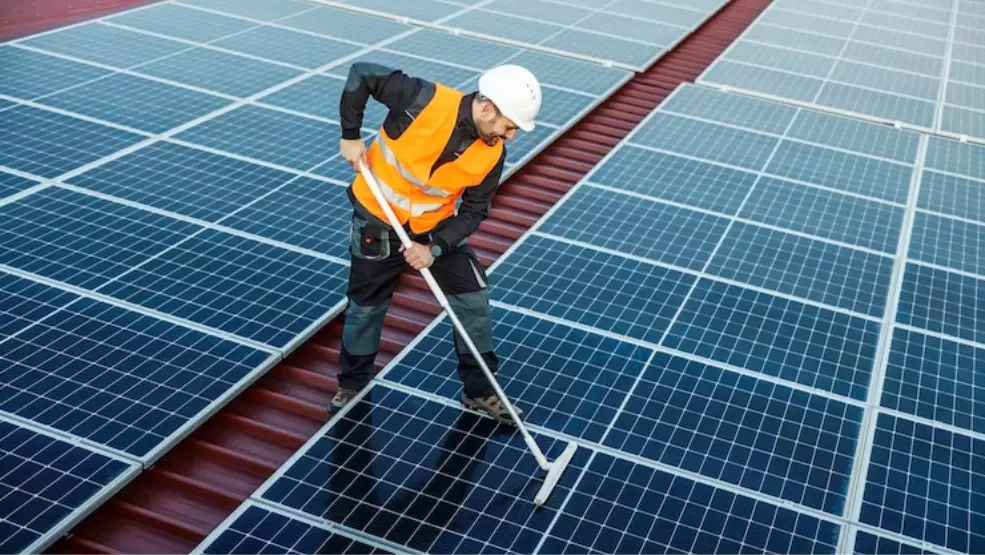
When done correctly, cleaning solar panels is safe, quick, and highly effective.
Choose the Right Time of Day
The best time to clean is early morning or late evening when the panels are cool. Cloudy days are also ideal.
Use Soft Cleaning Tools
A soft sponge, microfiber cloth, or a non-abrasive brush with an extension pole is best for removing dirt without scratching.
Rinse with Clean Water
Always use clean, preferably demineralized, water to avoid hard water stains. A simple garden hose works for light dust removal.
Avoid High-Pressure Washers
High pressure can damage seals and force water into sensitive electrical components.
Eco-Friendly Solar Panel Cleaning Tips
If you care about the environment, these eco-friendly cleaning methods work well and are safe for your panels.
Rainwater Rinse
Collect rainwater in a barrel and use it for cleaning. It’s naturally soft and leaves fewer streaks.
Vinegar and Water Solution
Mix ¼ cup vinegar with 2 cups water for removing light grime. This is gentle and effective.
Natural Bristle Brushes
Opt for brushes made from natural fibers instead of synthetic ones, which can sometimes leave residue.
How Often Should You Clean Solar Panels?
The frequency depends on your environment. If you live in a dry, dusty area or near trees, you may need cleaning every 2–3 months. In areas with regular rain and low pollution, once or twice a year may be enough.
A University of California study found that dirty solar panels can lose 7–20% of their efficiency in just one month without cleaning
DIY vs. Professional Solar Panel Cleaning
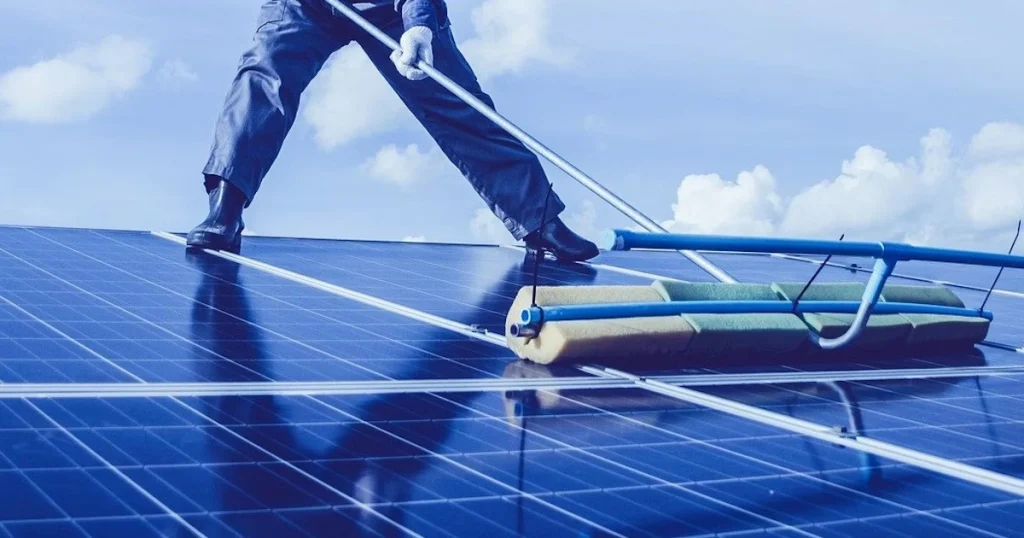
While DIY cleaning is cost-effective, there are times when professional cleaning is better:
- Panels are on steep or high rooftops
- Heavy buildup of grime or bird droppings
- Lack of proper cleaning tools
Professional cleaning usually costs between $100 and $300 depending on panel size and accessibility, but they use specialized equipment to avoid damage.
Safety Tips for Cleaning Solar Panels
- Turn off the solar system before cleaning
- Wear non-slip shoes when working on a roof
- Use a safety harness if needed
- Avoid standing directly on panels
- Work with a partner for extra safety
Maintaining Solar Panel Efficiency Beyond Cleaning
Cleaning is just one part of solar panel maintenance. You should also:
- Check for cracks or loose wiring during cleaning
- Trim nearby trees that cast shadows
- Keep an eye on your system’s energy output for sudden drops
Conclusion
Cleaning solar panels the right way can help you get the most out of your solar investment. Avoid harsh chemicals, abrasive tools, and unsafe cleaning conditions. Choose the right time of day, use gentle methods, and remember that safety comes first.
By combining regular cleaning with careful maintenance, you can ensure your panels last for decades, producing maximum energy and saving you money. Whether you do it yourself or hire a professional, the key is to clean smart and avoid costly mistakes.
FAQs About cleaning solar panels:
What to know about cleaning solar panels?
The smartest way to clean your solar panels is to approach the process the same way you would clean your car. Dish soap and clean water applied with a soft sponge or cloth is the safest and easiest cleaning method. It may also be helpful to use a squeegee to remove dirty water.
What chemicals are safe to clean solar panels?
Use mild cleaners: Harsh chemicals and abrasive cleaners can scratch and degrade the panels. Stick to mild soap or diluted vinegar solutions to cut through grime safely.
Can you stand on solar panels to clean?
No, you shouldn’t stand on solar panels when you’re cleaning them. Solar panels aren’t designed to support the weight of a person and could crack or break completely. Panels can also have slippery coatings on them, which is dangerous especially if you’re working at a height.
What’s the best thing to clean your solar panels with?
Mix a solution of water and mild soap to cleanse the panels and avoid chemical damage. Use a gentle scrubber to wash the panels, then perform a gentle rinse. Remove excess water with a squeegee and the sun will finish the job.

Viola Moore is a dedicated home improvement blog author who has a passion for writing. She enjoys blogging about all sorts of topics, from interior design to landscaping and more! She loves the outdoors and spending time in nature with her family. She also likes to bake in her free time.

